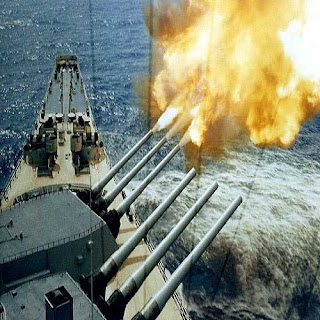South China Sea : The Philippines' Misguided Plan to Stop Tensions
South China Sea : The Philippines' Misguided Plan to Stop Tensions
Former Philippine president Fidel Ramos was in Hong Kong earlier this month to meet his “old friends” in hopes of breaking ice with Beijing. In a statement issued Thursday, Ramos and his interlocutors, including prominent Chinese diplomat Fu Ying, said they discussed the way forward “in the spirit of universal brotherhood and sisterhood for peace and cooperation between the two countries.”
In the geopolitical equivalent of David versus Goliath, China was legally thrashed by the Philippines last month in an international arbitration over their disputes in the South China Sea. In the aftermath, both are showing desires to mend fences. The parties, however, will squander the opening if they keep circling around the tried-and-failed idea of joint development of energy.
Minutes after a tribunal under the Permanent Court of Arbitration ruled against a raft of Chinese maritime claims and activities, China issued a statement denouncing the Philippines, the tribunal and its ruling, but also said it was willing to “make every effort to reach transitional arrangements, including conducting joint development in relevant waters.”
Manila had already signaled interest. A few days before the tribunal ruled, Foreign Minister Perfecto Yasay said the Philippines wanted talks with Beijing to see how “we can utilize and benefit mutually from the utilization of the resources.”
First raised by Deng Xiaoping and repeated by subsequent Chinese leaders, joint development has become Beijing’s reflex response to its acrimonious maritime relations. Desperate for energy and incapable of developing it alone, Manila has long hung its hopes on Chinese partnership. The ruling may have rekindled the political will to collaborate, but has also legally snuffed out the prospect.
South China Sea : The Philippines' Misguided Plan to Stop Tensions
In a direct rebuke to the most controversial and sweeping component of China’s claims, the tribunal declared that “there was no legal basis for China to claim historic rights to resources within the sea areas falling within the ‘nine-dash line.’”
The line, also known as the U-shaped line or the cow’s tongue, swoops down from China’s coast to take in most of the South China Sea. It slices into the Exclusive Economic Zone (EEZ) claimed by the Philippines, as well as into those by Brunei, Indonesia, Malaysia and Vietnam. China has not specified the line’s coordinates, nor articulated exactly what it is claiming within it, but its actions—evicting other claimants’ oil and gas surveillance vessels and shielding Chinese fishermen from other coastal states’ law enforcement—suggest it asserts entitlement to natural resources within it.
The Tribunal also ruled that none of the land features in the Spratly chain, off the Philippine coast and a few hundred nautical miles from China, are legally “islands.” That means no country, China included, can legally claim an EEZ, which extends two hundred nautical miles outward and comes with exclusive rights to resources.
Watch more : http://nationalinterest.org/feature/oil-wont-fix-the-philippines-china-problem-17373









No comments: